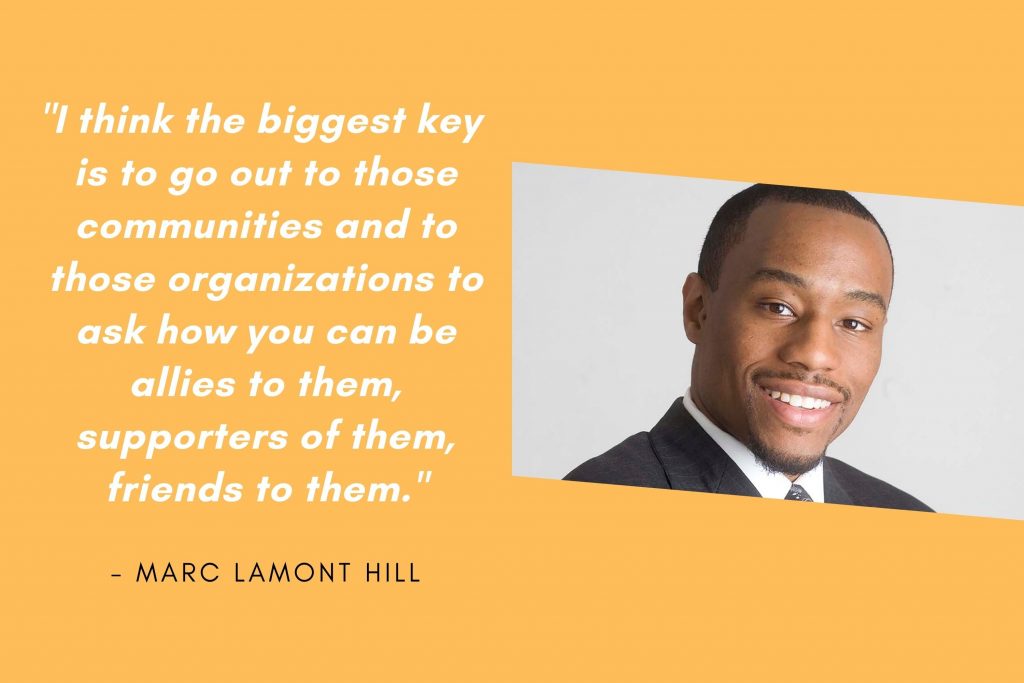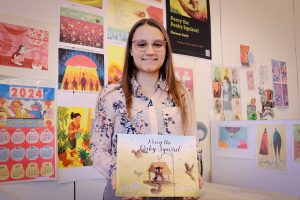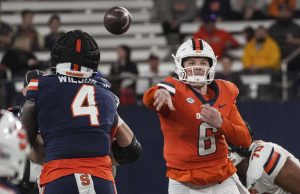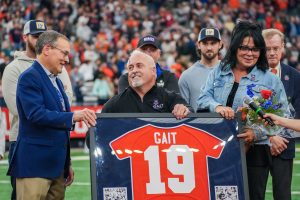Marc Lamont Hill speaks to SU students about Black voter suppression
Marc Lamont Hill speaks on Black voter suppression

Syracuse University students need to connect with community organizations to help combat voter suppression, Marc Lamont Hill said at SU’s Racial Equity Academic Symposium.
The BET News host gave a talk on voter suppression and its impacts on Black voters on Friday, Feb. 26, as part of the event hosted by the Office of Diversity and Inclusion and the Division of Faculty Affairs in the Office of Academic Affairs.
“Too often universities are like occupying forces inside of their neighborhoods,” Hill said. “They come in, they gentrify, they take over, we eat up resources, we walk through the campus. But the people who live in the neighborhood don’t feel connected to the university.”
Hill said the most important thing students can do is reach out to individual organizations and communities and ask how to be an ally, supporter, and friend instead of telling them what you will do.
The discussion shed light on how voter suppression has transformed over the years and is still present in 2021. Voter suppression tactics are facially neutral laws while impacting particular populations, Hill said.
“When you talk about voter ID laws, you’re talking about laws that are facially neutral,” Hill said. “Anybody with an ID can vote, anybody who ain’t got one can’t vote, true. But voter ID laws are not designed to make sure that you are who you say you are. Nobody’s out here committing fraud, that’s a myth.”
Data and research show that voter fraud is almost nonexistent, but the narrative is created to justify facially neutral laws that have a disproportionate impact on vulnerable communities, like people of color, Hill added.
“You have a better chance of getting struck by lightning in front of our house that you won playing the Powerball,” Hill said.
Hill described his experience voting in the last elections. He had to wait two hours in line outside to cast his ballot. For many other voters, an hour-long wait time to vote is a luxury they don’t have.
“I also have the extraordinary privilege of being able to work from home, being able to Zoom, being able to control my work hours to some extent,” Hill said. “But imagine if I worked at the local grocer. Imagine if I were in the gig economy and I had to drive an Uber, for example. That every minute, every hour I spend in line is an hour of me not eating as well, me not paying bills as much. Then what?”
The long lines result from intentional efforts to limit the number of polling locations in certain areas. The voting conditions created disincentivized poor people from voting, Hill added.
When asked why former Georgia gubernatorial candidate Stacey Abrams was successful in her work against voter suppression, Hill’s response was simple.
Abrams lost her gubernatorial race because of intentional tactics from the opposition, but she turned her pain into power, Hill added. Abrams engaged stakeholders, worked to increase voter registration, and communicated with her community.
“She said ‘I’m going to open a door for everybody,’” Hill said. “She spent the next few years organizing, doing ground game. She ain’t waiting until the next election. She hit the ground running the next day.”
In addition to Abrams’ work in Georgia, Hill credited the coronavirus pandemic with giving President Joe Biden the White House.
“The pandemic per se didn’t bring voters out, but it created conditions for voters to analyze their surroundings,” Hill said. “And it changed the way people were voting, so in that sense, accompanied with the struggling economy, I think that we saw something very different. I’m not sure, to be perfectly frank with you, that Joe Biden wins this election if there’s not a pandemic.”
Hill said unseating an incumbent president is difficult.
“It’s hard to lose when you’re already president, but Donald Trump found a way,” Hill said.





